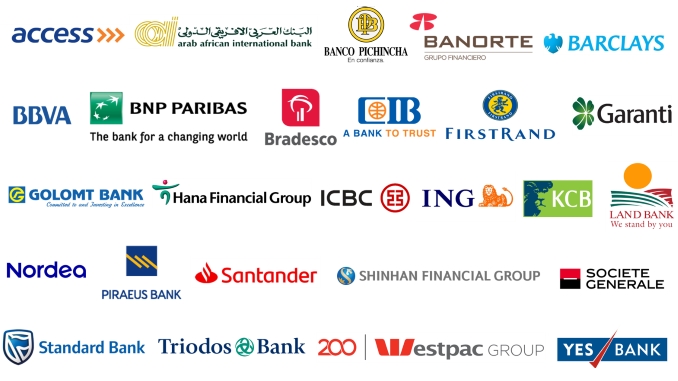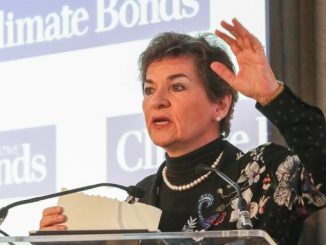
A coalition of 26 banks from around the world are developing Principles for Responsible Banking, which will seek to align the banking sector with the Paris Agreement and the UN Sustainable Development Goals (SDGs) and are expected to be launched for public consultation in November.
The new principles will be in line with the existing Principles for Responsible Investment (PRI) and Principles for Sustainable Insurance (PSI) – voluntary principles that provide signatories with a list of practices they can adopt to incorporate ESG issues into their business decisions.
The UN Environment Programme Finance Initiative (UNEP FI) announced yesterday (Tuesday) morning that it has convened 26 of its bank members from five continents to lead the initiative, which, it said, will set a global benchmark for sustainable banking and enable banks worldwide to “reaffirm their purpose and align their business practices” with the objectives of the SDGs and the Paris Agreement.
Christiana Figueres, former UN Climate Chief and convenor of the Mission 2020 initiative, had been among those calling for a banking equivalent to the investment and insurance principles, challenging UNEP FI to develop them for banks at its last Europe Roundtable in November.
“The material is already right in front of you, you don’t have to invent anything and you know what needs to be done, but it needs to be captured in principles that you would draft and that would be taken on board by your members,” she said.
The 26 banks met in person for the first time in London on 19-20 April.
UNEP FI said signatories to the principles will be required to set goals for and report on their contribution to national and international social, environmental and economic targets, adding that the principles will ensure accountability and transparency on banks’ impacts and challenge the banking industry to play a leading role in creating a more sustainable future.
“Similar to the role the Principles for Responsible Investment play for asset managers and the Principles for Sustainable Insurance for insurance underwriters, these standards will address the longstanding need for an umbrella framework to cover all aspects of sustainable banking,” said UNEP FI.
The process of developing the Principles will include consultation with stakeholders including civil society organizations, banking associations, regulators and UN bodies. The participants plan to launch the draft principles for global consultation during a UNEP FI Global Roundtable 2018 in Paris on 26 November.
“I’m delighted to be part of this initiative,” said Siobhan Toohill, head of sustainability at Westpac Group, “working with banks from around the world to define the banking sector’s role in achieving a sustainable future, including setting out the hallmarks of a sustainable bank, supported by an accountability framework.”
The 26 banks participating (and their respective countries) are: Access Bank (Nigeria), Arab African International Bank (AAIB) (Egypt), Banco Pichincha (Ecuador), Banorte (Mexico), Barclays (UK), BBVA (Spain), BNP Paribas (France), Bradesco (Brazil), Commercial International Bank (CIB) (Egypt), First Rand (South Africa), Garanti Bank (Turkey), Golomt Bank (Mongolia), Hana Financial Group (South Korea), Industrial & Commercial Bank of China (ICBC) (China), ING (Netherlands), KCB Group (Kenya), Land Bank (South Africa), Nordea (Sweden), Piraeus Bank (Greece), Santander (Spain), Shinhan Financial Group (South Korea), Société Générale (France), Standard Bank (South Africa), Triodos Bank (Netherlands), Westpac Group (Australia), and YES Bank (India).
“Our purpose at Santander is to help people and businesses prosper – and, in large part, that means recognising the key role that banks have to play in supporting inclusive growth, which is the only way to achieve sustainable growth,” said Ana Botín, executive chairman of Banco Santander.



